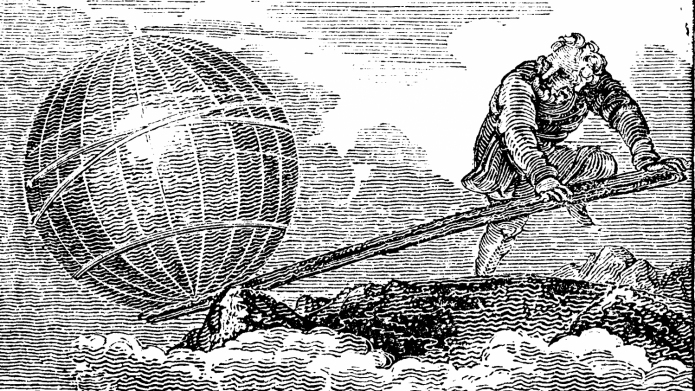
The most accomplished people prove the hardest work is done in our heart. Finding the proper leverage to move immovable obstacles to wisdom starts there. The goal of many in that effort is to find their true selves. For others, it is to find God.
In The Quiet Light, a novelization of the life of Thomas Aquinas, the Lord Abbot of Thomas’s first monastery reminds young Thomas of the question that had motivated the young monk’s journey of faith since he came to them at age five: “What is God?”
“Perhaps it is the wish of Our Father in heaven that you should find the answer to that question in such a way that it might be understood by many,” his master tells him.
The things of this world—and our ambitions to acquire them—are some of the biggest obstacles between us and the answer to Thomas’s question. At one point in this book, Thomas is asked, “Don’t you want to be an archbishop?” His answer: “Archbishops have so much other work to do, they have no time to think.”
Later in his journey, Thomas’s fellow students at the University of Naples thought him a dolt because he never spoke up in class and never took notes. Finally, when challenged to explain a particularly challenging point in a lecture about St. Augustine, Thomas quietly answers, “Understanding is the reward of faith. Therefore, seek not to understand that thou mayest believe, but believe that thou mayest understand.”
Thomas eventually enters the Dominican order of monks, which taught “there is nothing more active than contemplation.” The Dominicans build a fire in Thomas’s heart, teaching: “The enemies of God have got a hold of knowledge and distorted it to fit it in with their purpose. We shall answer them with the knowledge of truth.”
Therein lies the authority to teach—and it is amazing.
In Sunday’s gospel reading from the first chapter of Mark (Mk 1:21-28), Jesus amazes people with the authority behind his teaching. “He commands even the unclean spirits and they obey him.” Those spirits felt the truth-based authority Jesus won during the 40 days and nights of contemplation that prepared him for his public ministry. The lessons he taught Satan within that time period about the gravity of God’s will have yet to be learned by many negotiating the obstacle course of 21st century life. Many of those obstacles are the same immovable objects Satan tried putting between Jesus and the truth. As Sunday’s first reading indicates (Dt 18:15-20), God previewed for Moses the leverage He would provide future generations to help them clear the way to Him:
“I will raise up for them a prophet like you from among their kin, and will put my words into his mouth; he shall tell them all that I command him. Whoever will not listen to my words which he speaks in my name, I myself will make him answer for it. But if a prophet presumes to speak in my name, an oracle that I have not commanded him to speak, or speaks in the name of other gods, he shall die.”
Jesus’ life and death made available for future generations the power needed to move the immovable objects false prophets place between us and Our Father. But as Paul tells us in Sunday’s second reading (1 Cor 7:32-35)—based on his own experience—finding our leverage is the cost of living. And sometimes life itself can toss a few obstacles in our way to the truth. One of the truths we discover early in life—as Paul did—is that life ain’t easy. Be careful of its distractions, he advises:
I am telling you this for your own benefit, not to impose a restraint upon you, but for the sake of propriety and adherence to the Lord without distraction.
Maybe if more of us sought those quietly-lit places Thomas Aquinas found for active contemplation, we could provide our world with the fulcrum of truth sufficient to offload the weighty evils standing between humanity and the love of God.
–Tom Andel